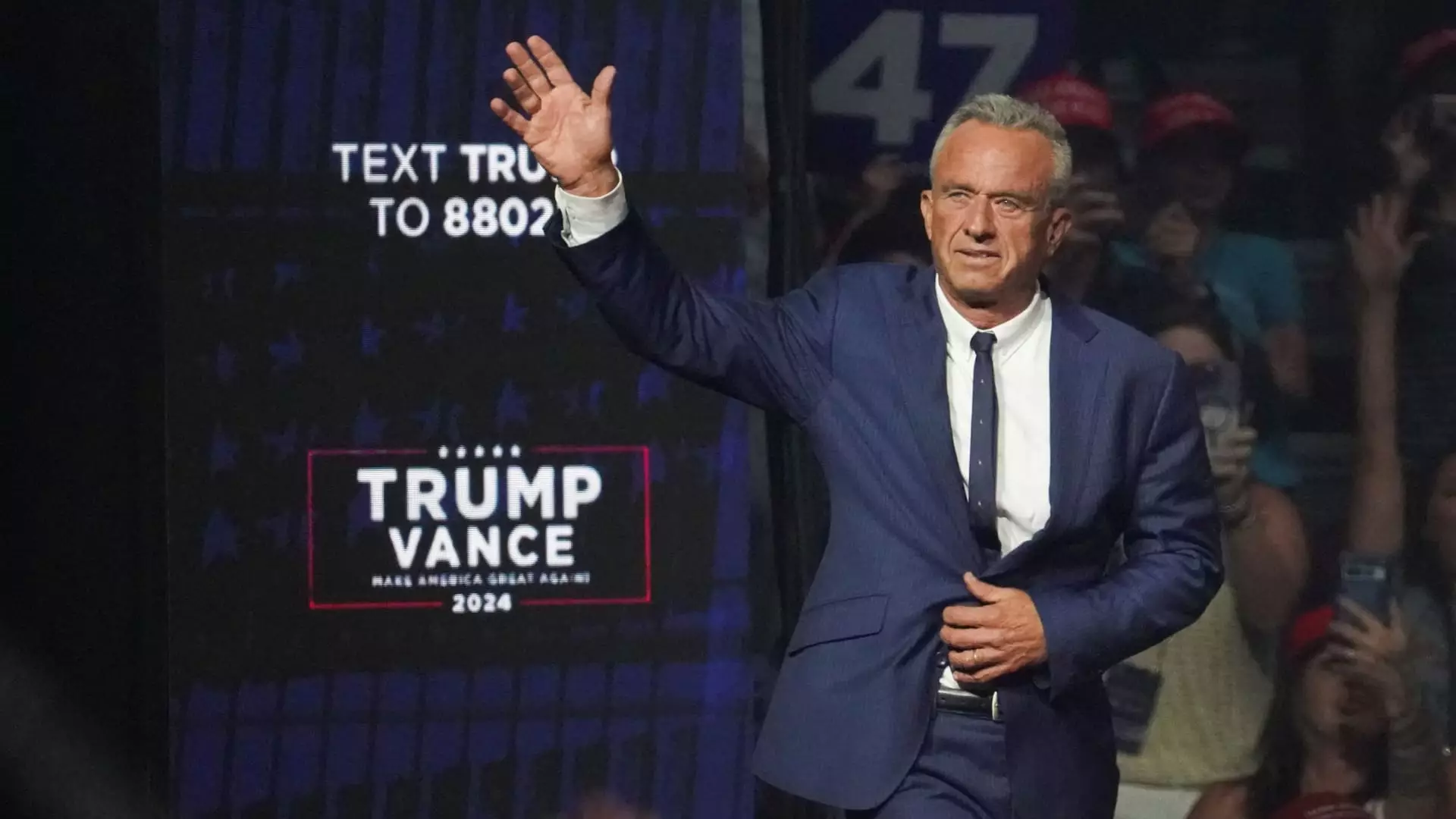When Robert F. Kennedy Jr. made the bold decision to drop his independent White House bid and endorse former President Donald Trump, he believed he was implementing an electoral strategy that would solidify Trump’s chances in key battleground states. However, his plan to remove his name from swing-state ballots did not go as smoothly as he had hoped. Despite his best efforts to withdraw his candidacy in North Carolina, Wisconsin, and Michigan, Kennedy found himself stuck on the ballot in these crucial states. This unforeseen obstacle significantly diminishes the potential electoral advantage that Trump could have gained from Kennedy’s exit.
The Impact on Swing States
Kennedy’s failure to successfully remove himself from the ballot in states like North Carolina, Wisconsin, and Michigan holds particular significance due to their status as swing states where Trump would have performed better in a head-to-head matchup against Vice President Kamala Harris. With Kennedy still listed as a candidate in these states, Trump’s chances of securing additional support are hindered, ultimately undermining the intended impact of their alliance. This setback leaves only Arizona and Pennsylvania as states where Kennedy’s absence may directly benefit Trump’s campaign.
While Kennedy may have withdrawn from the race in Florida, Texas, and Ohio – states considered safe for Trump – his inability to navigate the withdrawal process in critical battleground states exposes the flaws in his electoral strategy. The unexpected legal challenges in Michigan, the decision by Wisconsin’s Elections Commission to keep Kennedy on the ballot, and the ongoing lawsuit in North Carolina highlight the complexities of attempting to alter the electoral landscape so close to Election Day. These unforeseen consequences demonstrate the limitations of attempting to bolster a candidate’s chances through last-minute maneuvering.
Despite the setbacks faced by Kennedy and Trump’s campaign as a result of their failed withdrawal efforts, there remains a glimmer of hope that Kennedy’s endorsement could still sway undecided voters in Trump’s favor. Throughout his controversial campaign, Kennedy garnered support from individuals disillusioned with the mainstream political establishment, presenting an opportunity for Trump to capitalize on his appeal to this demographic. Trump’s optimism regarding Kennedy’s potential impact on the campaign suggests that he sees value in aligning himself with the independent candidate, even in the face of electoral challenges.
Looking Ahead to Election Day
With only 63 days remaining until Election Day, the current polling data paints a picture of a competitive race between Harris and Trump. Despite Kennedy’s turbulent exit from the campaign trail and his lingering presence on ballots in key swing states, Trump remains steadfast in his belief that Kennedy’s endorsement will ultimately work in his favor. As the election draws nearer, the impact of Kennedy’s failed withdrawal efforts on Trump’s electoral prospects will become increasingly apparent, raising questions about the efficacy of eleventh-hour strategies in shaping the outcome of the election.


Leave a Reply